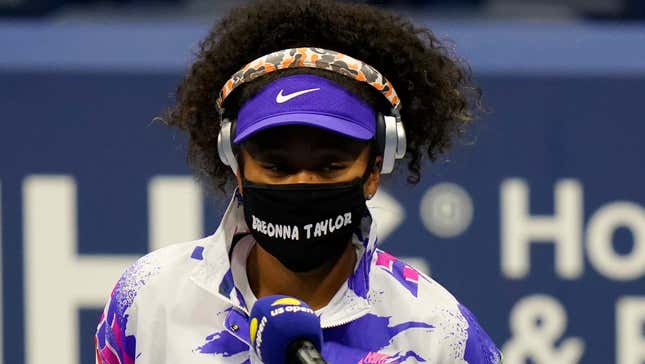

Monday marked the first day of the 2020 U.S. Open, one of the biggest tournaments of the tennis season. Naomi Osaka, currently ranked ninth in the world by the WTA, competed (and won) in the first round against Japan’s Misaki Doi with Osaka taking two sets. While Osaka’s performance was, as usual, an exciting feast for the eyes, it’s what she did outside of her match with Doi that left an indelible mark on the U.S. Open’s first day.
-

-

-

-

-

-

-

-

-

-

-

-

-

-

-

-

-

-

-

-

-

-

-

-

-

-

-

-

-

-

-

-

-

-

-

-

-

-

-

-








































